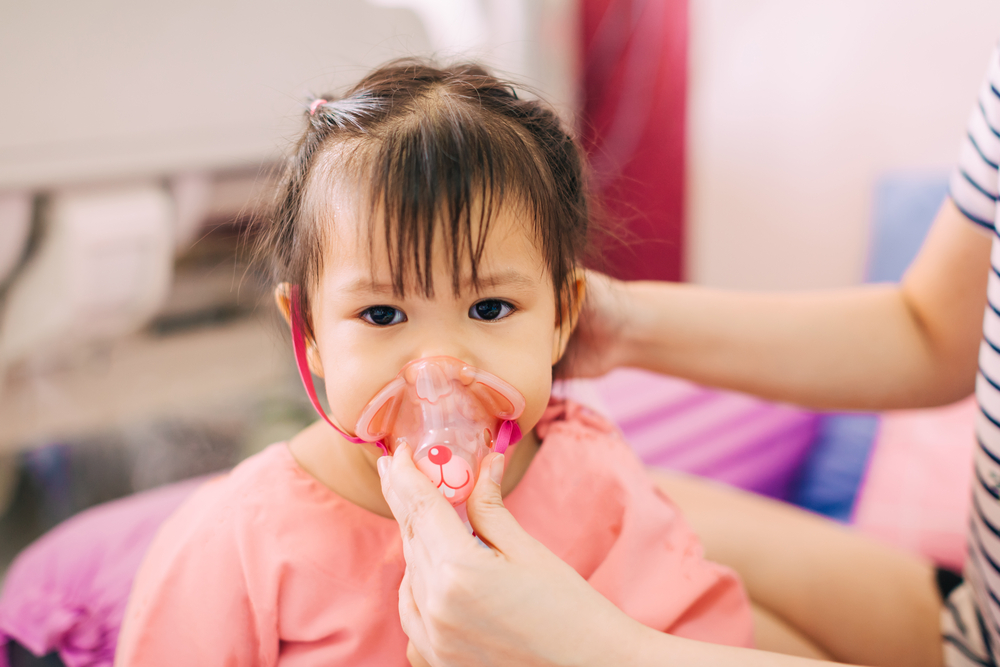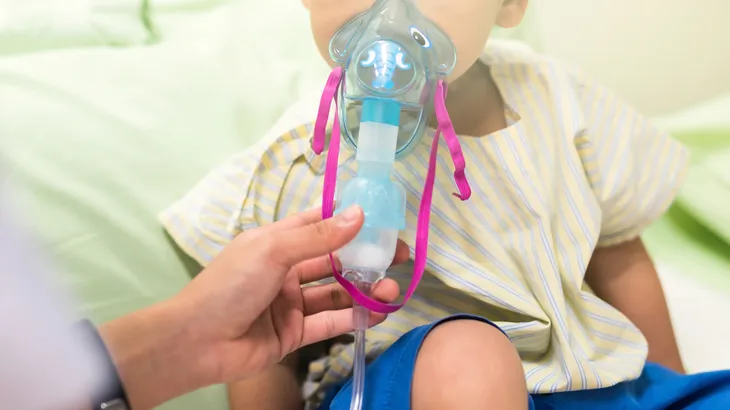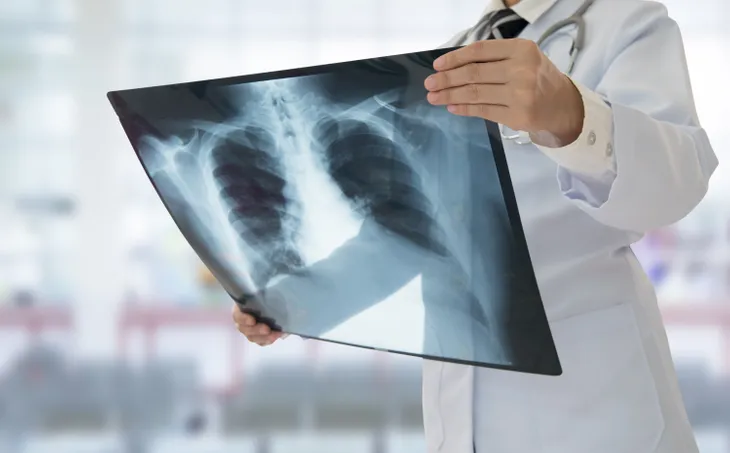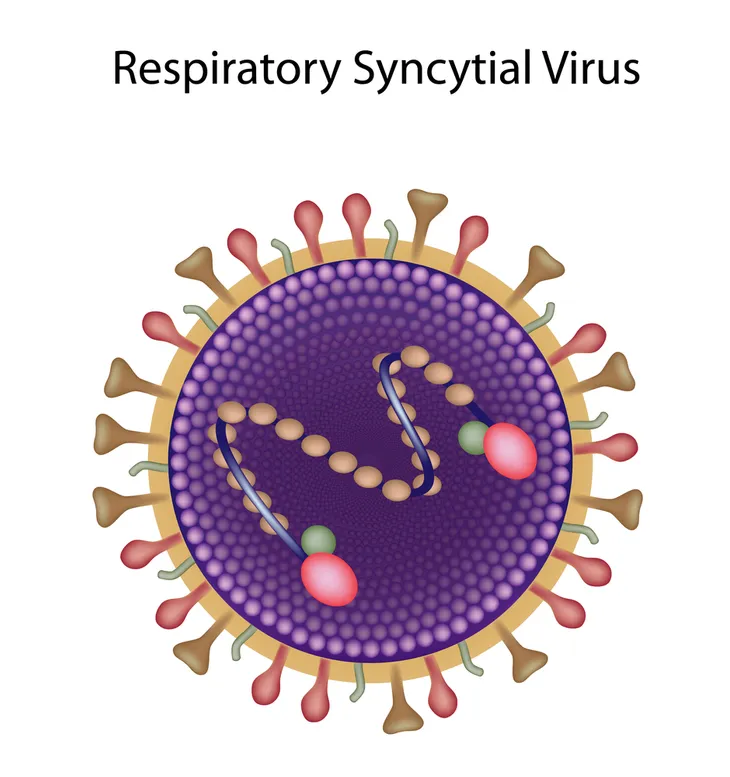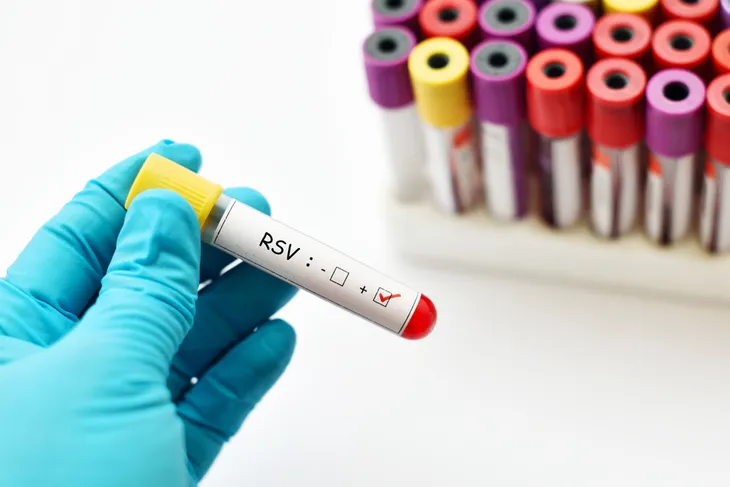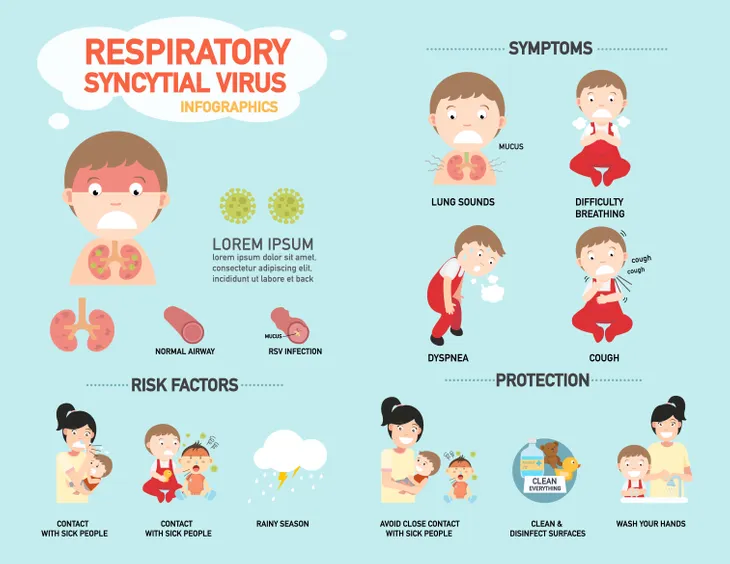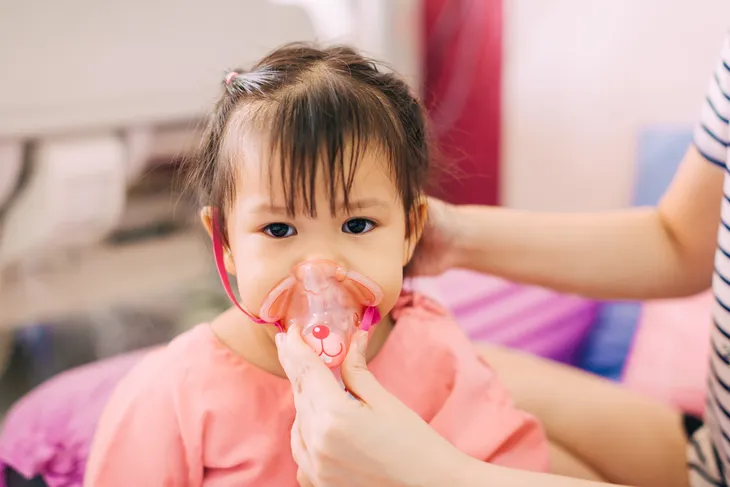There are a lot of viruses out there, including many you probably have never heard of. One of those might be respiratory syncytial virus (RSV), which is actually the most common cause of pneumonia in infants according to the Centers for Disease Control and Prevention (CDC).
RSV may go unnoticed because in most cases, it mimics mild cold symptoms. Other times, it can become something a lot more serious in kids (as well as older adults), adds the source. Here are 12 things to know about RSV…
Defining RSV
This virus causes infections of the lungs and the respiratory tract, notes the Mayo Clinic, and it’s so common that most children will have experienced it by 2-years of age. Adults can also get it, although it will likely be passed off as a mild cold.
Generally, the virus doesn’t cause any serious symptoms, but it can get out of control in other cases, which is of particular concern for parents of young children. It’s also highly contagious. Let’s look closer at some of the related symptoms…
The Mild Symptoms
The Mayo Clinic says you may not be able to distinguish this viral infection from the common cold in most cases.
Common symptoms can include congested or runny nose, dry cough, low-grade fever, sore throat, and a mild headache. It’s not usually a cause for enough concern to see a doctor. “Self-care measures are usually all that’s needed to relieve any discomfort,” adds the source.
Getting Serious
The same source explains that if the virus spreads to the lower respiratory tract, the symptoms can worsen, and may lead to pneumonia or bronchiolitis, which is inflammation of the small airways entering the lungs.
More concerning symptoms of RSV include fever, severe cough, wheezing, rapid or labored breathing, and a bluish color due to lack of oxygen. Also, look for “caving in” of the chest between the ribs. These symptoms warrant immediate evaluation by a medical professional.
Younger Children, Higher Risk
BabyCenter.com notes that most hospitalizations from RSV involve children younger than 6-months of age. Overall, 60,000 children under 5-years of age end up hospitalized as a result of this infection.
Young children may not be able to communicate their symptoms, so other signs to look for include poor appetite, excessive irritability or restlessness, and lethargy. Children are at highest risk for complications if they were born prematurely, are under 2-years of age and have congenital heart disease or chronic lung disease, or have a compromised immune system.
How it Spreads
RSV really gets around, and quickly. KidsHealth.org explains this highly contagious virus spreads through droplets containing traces of the virus from coughing or sneezing.
The virus can also live on solid surfaces, such as countertops and doorknobs, as well as on hands and clothing, and “it can easily spread when a person touches something contaminated.” Because of the highly transmittable nature of RSV, it often sweeps through schools and daycares facilities.
Seasonal Risk
TheBump.com says it can be tough to distinguish RSV from a bad cold in some cases, as the peak season for RSV is the same as cold and flu season – roughly November through March. The flu virus loves cold and dry air, which is typical for this time of year in more temperate states.
However, if your child is showing cold symptoms that don’t seem to be improving, you’ll want to get it sorted out, as RSV can extend further into the respiratory system than a basic cold and cause some of the complications we’ve already mentioned.
Geographic Risk
According to a chart from the CDC, the RSV season differs slightly depending on where you live in the U.S. For example, the peak season in 2016-2017 ranged from late December to mid-February.
However, there seems to be more geographical risk tied to Florida. “Florida has an earlier RSV season onset and longer duration than most regions of the country,” writes the source.
Diagnosing RSV
That brings us to the next point – how does a doctor distinguish between cold, flu, and RSV? According to MedicineNet.com, there are a number of lab tests that can confirm the presence of RSV.
The same source adds that most modern clinical labs use a nasal swab test to look for signs of RSV, which is up to 90-percent reliable. There’s an even newer RT-PCR test that is even more reliable and is becoming the standard for RSV detection in labs and hospitals.
Treatment: Home Care
In milder cases, RSV infections will likely go away on their own within 2-weeks or so, notes WebMD. However, there are a number of ways to minimize the symptoms of RSV without medical intervention.
You can turn to child-approved doses of acetaminophen (Tylenol) or ibuprofen (Advil) to provide some relief. You can also try to keep your child in an upright position to assist with breathing. Also, make sure your child has plenty of fluids from breast or bottle-feeding, as dehydration can be a complication of RSV. You should avoid giving your kid sugary drinks and even water during the illness, as they lack sufficient minerals.
Treatment: Medical Care
In more severe cases, a doctor may prescribe your child antibiotics to treat complications such as pneumonia, adds WebMD. However, it’s important to note that antibiotics don’t treat RSV itself (or any other virus for that matter).
In some cases involving otherwise healthy children, corticosteroid medicines are sometimes used, although the source says more study is needed to determine the benefits of this approach. If a child has been admitted to the hospital for RSV complications, they may be given the antiviral drug ribavirin. But pregnant women should avoid contact with their child if they’re receiving this medicine.
Preventing RSV
Like many other viral infections, proper hygiene can make the difference in avoiding it in the first place. The CDC says you should wash your hands often with soap and water for 20-seconds (and help your children do the same).
Other ways to protect against the spread of RSV is by avoiding touching your face, avoiding close contact with sick individuals, covering coughs and sneezes with a tissue (and disposing of the tissue), cleaning and disinfecting hard surfaces, and staying home if you have symptoms.
RSV in Adults
Like young children, the virus can hit older adults – especially hard, especially those with chronic health conditions, adds the CDC. The source explains that about 177,000 older adults are hospitalized annually as a result of RSV, and 14,000 patients die from it.
The trouble is that the immune system weakens as people get older, leaving them open to more complications from common illnesses. While most adults will only experience mild cold-like symptoms, older adults are at higher risk for developing complications and ending up in the hospital.
